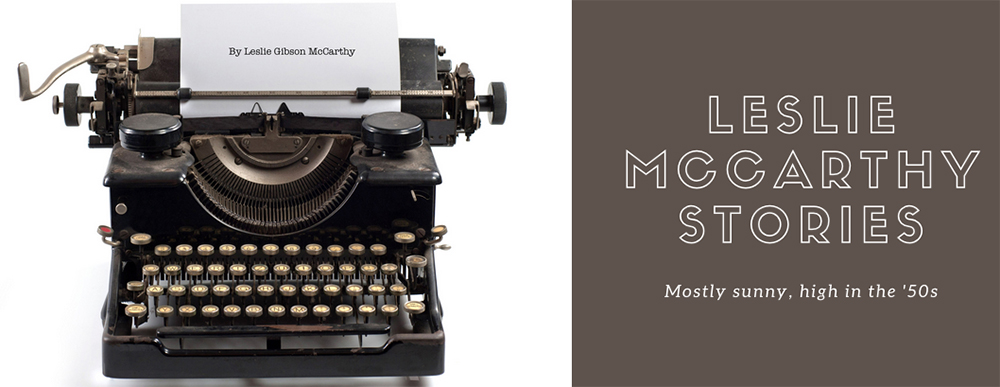The winning columns
Since the summer of 2003, I’ve had the good fortune to be asked to fill some space in a local community newspaper. At last count, about 890 columns in 19 years. They haven’t all been home runs, not even close. But like my former colleague at the Sporting News once said, “Sometimes a double to the gap is just as effective. And while I may be known to push the deadline to the last possible hour each time), I pride myself on respecting the word count and always showing up, weekly for 17 years, and now once a month.
And in June, this happened. I won first place in the print category for the National Society of Newspaper Columnists for columns written in 2021. They’re below, if you want to keep reading. For now, I’m deeply honored to be in the company of these great columnists, and even happier to bring national attention to my friends at Times-Newspapers and the Webster-Kirkwood Times.
Here were the two submissions:
“This is not our world with trees in it. It’s a world of trees, where humans have just arrived.”
I read that recently from the writer Richard Powers, who won the 2019 Pulitzer Prize for his novel, “The Overstory.” Perspective-changing? Definitely. I can honestly say I haven’t looked at trees the same way since.
And so a story about a tree for the month of April, the month of Arbor Day celebrations and poetry. I don’t think it’s an accident these two intersect.
The tree is now a 22-foot white oak that grows near the corner of a corner lot in Crestwood. A tree that’s been growing 14 years this spring, since the time it arrived in a 10-year-old’s backpack, a sapling wrapped in a paper towel. I remember the day he brought it home, unpacking his lunch, a pencil box and a bunch of crumpled papers before proudly holding it up and saying, “When is dad coming home?”
It was a 2007 Arbor Day giveaway, compliments of the state of Missouri. Do they still do that for fourth graders? I certainly hope so.
They planted that twig a few days later, a stake marking its place and mulch protecting is base. They watered it together that first summer, and somehow it survived into the first winter. After that, a second spring, followed by seasons and seasons of windstorms, thunderstorms, snow storms and ice storms. It took a few years to sprout noticeable branches but until it did, it didn’t seem to mind being tagged as second base or as an end zone marker for little boys’ games.
“Once there was a tree who loved a little boy … ”
I read that once from the poet Shel Silverstein and didn’t quite understand it the way I do now.
Growth for the tree came in increments, budding each spring and then retaining its leaves throughout the winter until new buds could push them out the following year. Growth for the boy came in increments, too.
And now, it’s about as straight and tall as you can imagine, more than three times as tall as the dad and the boy who plotted its forever place near the corner of our corner lot. I asked him once if he remembered planting it. “Of course,” he said. “I didn’t think it was going to make it.” Until it did.
Time doesn’t stop. The tree will only grow taller; the boy who planted it will only grow farther. He comes back home from time to time, of course, but probably doesn’t give the tree a passing thought. It just is, this white oak that grows near the corner of a corner lot in Crestwood. It just is.
“What we care for,” the writer Powers wrote, “we will grow to resemble. And what we resemble will hold us, when we are us no longer.”
Published in the Webster-Kirkwood Times April 19, 2021.
It had gone undiscovered for years, a handwritten recipe tucked between the pages of a hand-me-down cookbook. A cookbook that belonged to my mom, because the recipes of her kitchen landed in mine — a natural progression to her only daughter.
And that’s when it fell out, a loose-leaf sheet of paper filled on both sides with a recipe written in my mom’s clear, cursive, parochial-school penmanship. A recipe written in her hand. And it stops me in my tracks — not in a sad way by any stretch, even though my mom has been gone for 27 Thanksgivings now. But who’s counting?
Like a whisper through the trees or a tiny bird landing on the windowsill, I get the feeling this piece of paper fell out for a reason. And I begin reading this recipe for what she titled, “Cherry Crunch Cake,” every word of it.
In her hand, the recipe begins with “1 cup oatmeal,” and I remember hot breakfast before school.
In her hand, it continues with “1 stick butter,” and I remember the sweetness that graced a holiday table.
In her hand, it takes two lines to write, “Pour 1-1/4 cups of boiling water over this/and let stand 20 min,” and to me, that reads like poetry.
What a treasure this is, this two-sided sheet of loose-leaf paper, offering instructions for an oatmeal crust cherry cake, speaking to me from long ago. We all have them — recipes copied in cursive or hand-lettered on notecards from a mother, a grandmother, a sister, a friend. They are treasures beyond value, because who could foresee a day when penmanship would become a lost art?
We just don’t write stuff down anymore. We make our grocery lists on smartphones. If we need to know the nuances of a family’s favorite dish, we send a text. If we can’t remember how long butter should sit at room temperature, we Google it. But what we’ve gained in time, we’ve lost in texture. For it’s not what the recipe promises that takes my breath away; it’s the manner in which it is written — in her hand.
Because I hold in my hand what’s written in her hand, I can read between the carefully constructed lines of cursive. I can see her sitting at our kitchen table copying it from a newspaper, with a Pepsi in a Tupperware tumbler and a lit cigarette balancing on an ashtray. Or maybe she called a friend and took dictation over a rotary telephone, her head tilted to hold the receiver between her ear and shoulder.
It matters little that I don’t recall her ever making Cherry Crunch Cake for the family, but maybe this is a recipe that was never meant to be made. It was made to be found, and it’s now fulfilled its purpose. Fortysomething years later, I hold in my hand something in her hand. And I remember how it feels to be nourished.






